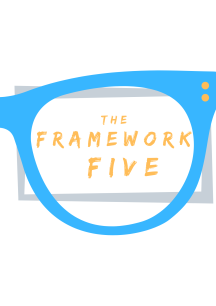
It’s been really interesting to read the submissions and blog posts for Thing 1. We asked “What is Information Literacy” and the task asked you to reflect on what informs, and contributes to, information literacy in your context.
I’ve picked a few snippets and included a full submission to give you a flavour of the responses.
“There are hardly any boundaries to what informs and contributes to information literacy in my work context. Five years into being a librarian […] I will always discover new limits of my knowledge and perceived standards”.
“The task I would like to discuss and reflect on for Thing 1 is the bread-and-butter of librarianship: collection development, specifically decisions about acquiring and weeding books. Thinking about it, information fluency in these tasks is shaped and defined similarly, summarised in the following bullet points:
• Principles of collection development learned in library school
• Observations of other librarians’ practices, informal discussions with librarians and remarks on social media
• Conference presentations and journal articles (e.g., about just-in-time collecting)
• My library’s collection development policy, hammered out via committee
• Usage patterns of the materials
• Trends in how students work
• Current needs of library
• Expectations of the college
• Budget
• Input from Directors of Studies (in theory, but in practice not very often)
• Larger trends in technology – VLEs and putting readings online – do students really need the books?
• Larger trends in Cambridge university libraries
• Larger trends in academic disciplines and the world (e.g., climate change)
• Gut feelings
Looking at the list, I am struck by a few points. Firstly, fluency in the information needed to maintain a library collection can never be boiled down to a formula: the role of emotions and informed guesses is significant. Secondly, I am struck by how social this fluency is. Each of the bullet points above forms a network with people and institutions in my college, across the university and with my colleagues. I was surprised by the affective and social nature of this core aspect of my work!”
Another writer, also picked buying printed books as their task and joined the dots with how this is connected by the community in Cambridge. “This seemingly simple task is multi-faceted and involves a variety of information sources and evaluation of the information found. Fluency in this activity is defined as buying the correct book, for the best price and with a quick delivery time. The skill is a universal one and not hard to do or learn, but it is influenced by the community…”
I hope that you feel inspired to complete Thing 1, and get started on Thing 2.
Laura Moss
